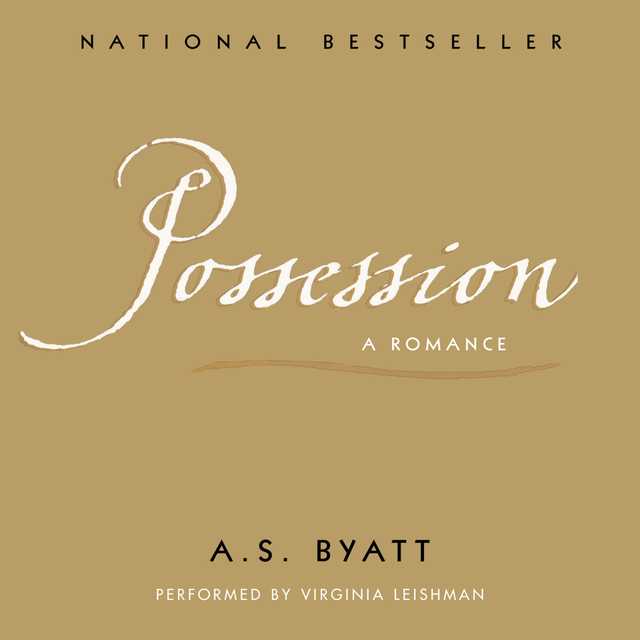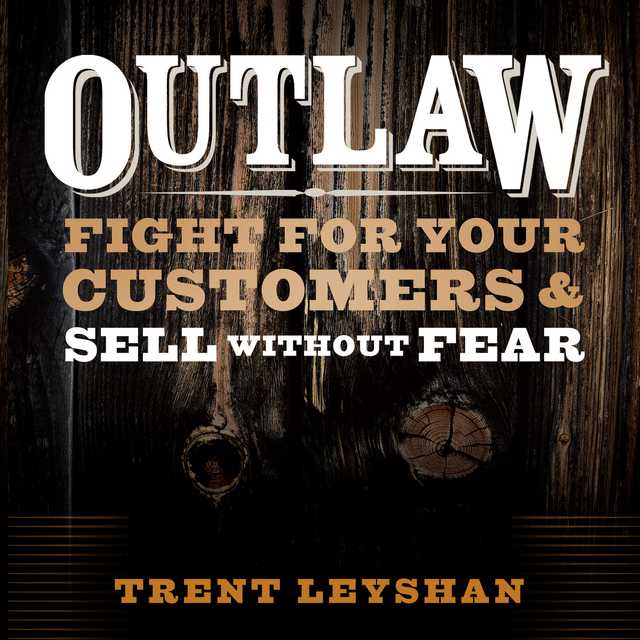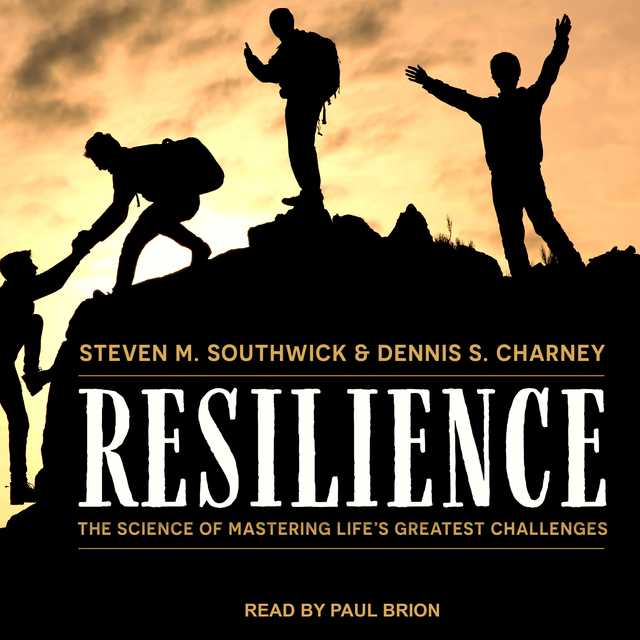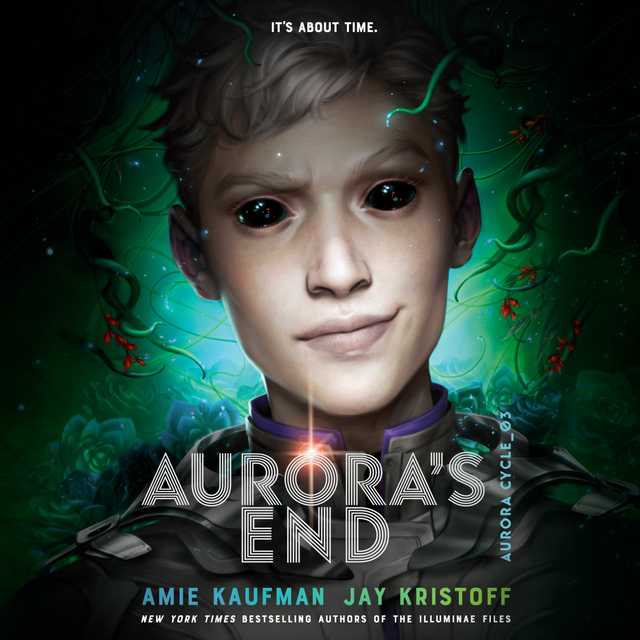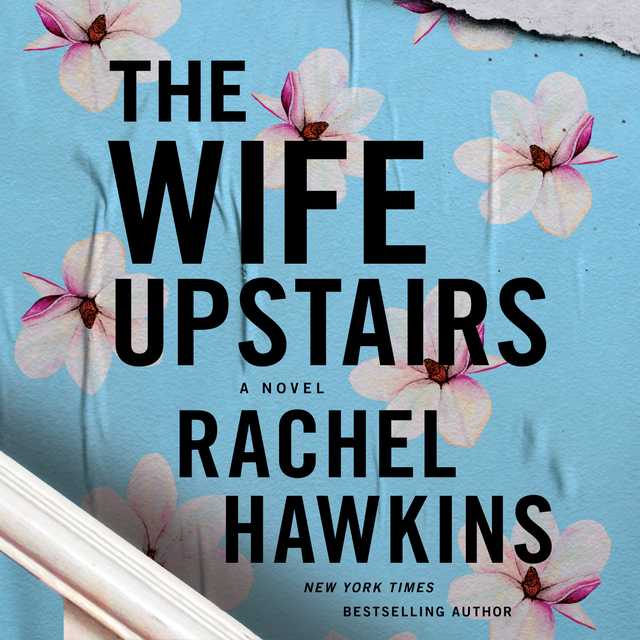Possession Audiobook Summary
Winner of England’s Booker Prize and a literary sensation Possession is an exhilarating novel of wit and romance, at once an intellectual mystery and a triumphant love story. As a pair of young scholars research the lives of two Victorian poets, they uncover their letters, journals, and poems, and track their movements from London to Yorkshire — from spiritualist sences to the fairy-haunted far west of Brittany. What emerges is an extraordinary counterpoint of passion and ideas.
Performed by Virginia Leishman
Other Top Audiobooks
Possession Audiobook Narrator
Virginia Leishman is the narrator of Possession audiobook that was written by A.S. Byatt
A. S. Byatt is famed for her short fiction, collected in Sugar and Other Stories, The Matisse Stories, and The Djinn in the Nightingale’s Eye. Her full-length novels include the Booker Prize-winning Possession, The Biographer’s Tale, The Shadow of the Sun and the quartet of novels including The Virgin in the Garden, Still Life, Babel Tower, and soon to be completed by A Whistling Woman. She has also published es of critical work, of which On Histories & Stories is the most recent. She lives in London.
About the Author(s) of Possession
A.S. Byatt is the author of Possession
More From the Same
- Author : A.S. Byatt
- The Djinn in the Nightingale’s Eye
- The Matisse Stories
- Publisher : HarperAudio
- Abraham
- American Gods [TV Tie-In]
- Dead Ringer
- House of Sand and Fog
- Prey
Possession Full Details
| Narrator | Virginia Leishman |
| Length | 22 hours 18 minutes |
| Author | A.S. Byatt |
| Category | |
| Publisher | HarperAudio |
| Release date | January 18, 2005 |
| ISBN | 9780060797942 |
Additional info
The publisher of the Possession is HarperAudio. The imprint is HarperAudio. It is supplied by HarperAudio. The ISBN-13 is 9780060797942.
Global Availability
This book is only available in the United States.
Goodreads Reviews
Kelly
August 05, 2014
That was.. not what I was expecting this time.I have to admit, I did not approach this book this time around with what I would consider pure motives. I wasn’t in it to find things I had never found before, to revisit a personal classic to explore ideas that I had left behind for the time when I was ready to connect with them in the way that they deserved. I wasn’t even in it to re-approach situations and characters with a new perspective of age and experience.No, I needed something from this book. I can’t really think of any other way to put this, really: I was self-medicating with this book.I’ve heard this talked about in so many different ways, if perhaps not in those words, by other book lovers that I know that I can’t be the only one who does this. I came back to this book because of the transformative experience I had the last two times. I needed to be transformed. I’ve fallen into a new line of work in recent years, and I.. well, there are a lot of things that I’ve seen that I wasn’t prepared for. It’s the sort of work where I’ve felt the need to create an entirely separate daytime persona to feel brave enough and competent enough to get through the day, one that I consider separate from what I would consider myself. I come home at the end of the day and spend my time trying to reconnect with the other person I know I am and want to continue being. Some days I can even stay awake long enough to get some of her back. It isn’t that it is necessarily objectively that horrible of an experience. It’s just something where the vast majority of the time I spend during the day is spent in tasks that are for the most part not suited to my personality or many of my strengths. It also involves things that I would personally prefer not to be part of my life. I chose this job because I had become so disillusioned with the ivory tower academic path I was on that I chose the most opposite thing that I could think of to do that still fell within the realm of my skills and education. After years of being shut up inside a library going crazy inside my head, I got sick of the whole exercise as a merry-go-round of narcissistic and masochistic head games. I decided I just wanted to be useful, do anything that didn’t leave me time for that nonsense. I think that I am useful, sometimes. Sometimes I help. Sometimes I go home and don’t wake up in the middle of the night worried, or check my email at 10 pm just in case.But goddamn, it’s just… it’s ugly sometimes. It’s tiring, and isolating, and my daytime persona is taking over more and more of my time. There are things about her that I like and I think would benefit me if I could adopt them outside a situation of necessity. But there are things that I desperately want to save about the person that I can only be after work hours, which I have less and less time for. What I would gain is not worth what I would lose-I am lucky enough to have enough time with my other self banked right now to be able to say that with certainty. It’s the only fucking reason I can write this review right now- I’ve got the other one far enough at bay that I can only barely hear her screaming about what a fucking waste of time this is and what a terrible writer I am anyway and I should get back to doing something that fucking helps somebody.I reached for Possession after two weeks of working twelve hour days and only one Saturday to restore my Self. I wanted it to bring me back to myself as fast as possible, though I'm sure I didn't think that consciously. I thought, Irememberthis , only, when I was lucky enough to see it on the shelf.There are parts of this book that I have such a strong, bodily anchored memory of, that I have connected to so strongly that my body has a sense memory of what it should do at the time when I read those words. I am at the point with this book where I am not only remembering the scenes and words, I am doubling that over with my memories of myself reading them and feeding off of them, trying to make them a part of my immediate self again. It was a cycle of memory and experience, one feeding off the other to bring me back, make me disappear and make me whole again, here in the present.I went to it looking for something that I knew wasn’t going to go away: beauty. I needed some beauty in my life so badly, and this is how you know the disease of bibliophilia has really set in- books are what I turn to when I need that. I go to books to remind myself that beauty exists and it is worth something and it is a part of me, no matter how much I forget that sometimes. There are some books that we readers can no longer do this with. Before I realized what I was doing this, it was happening for years with my constant re-reads of parts of Guy Gavriel Kay novels. He was my go-to until I read his latest novel and the spell was broken- I stayed in the present and analytical- that it wouldn't work again. That was when I started to figure out what I was doing because then I tried reading my favorite novel of Arturo Perez-Reverte’s, and similarly, rather than being swept away, all I could see was the melodramatic dialogue and some fucked up coded gender politics that I considered writing an enraged essay about. Some of this, sure, is perhaps about developing better taste and letting go of adolescent attachments. But more of it is about being so far away from what I like to think of as myself that there are days where I can’t get back.Possession, though, it brought me back. It has not disappointed me yet. Parts of this book made me laugh and smile and exercise my brain in the way that I want it to be exercised, and alternately, it devoured me whole. There were parts where I came up gasping for air, and parts that I danced over lightly, barely reading, except for letting the pieces of a well-known structure fall reassuringly into place.. There were parts where the rhythm of it was enough, and parts where I read and re-read a page again and again until I felt I had understood it on many levels.But mostly, it was all so much words, words, words, paragraphs and pages put together in just that way. Unsurprisingly, perhaps, for a read that looked to suck out whatever drop of beauty it could find, it was the “first-hand” personal accounts that stood out to me the most here- the letters and the diaries- each and every one of them a record of love, desire, becoming and stone-set final regret and loss, each and every one of them filtered though the love of words, writing and books, of the seeking, narrative embroidered kind that I recognize as one of my own:”…I may write to you as I write when I am alone, when I write my true writing, which is for everyone and no one- so that in me which has never addressed any private creature, feels at home with you. I say “at home” what extraordinary folly- when you take pleasure in making me feel most unhemlich, as the Germans have it, least of all at home, but always on edge… But poets don’t want homes- do they?- they are not creatures of hearth and firedogs, but of heaths and ranging hounds. Now tell me, do you suppose what I just wrote is the truth or a lie?”“Today I laid down Melusina having come trembling to the end of this marvelous work. What shall I say of it?.... How shall I characterize it? It is like a huge, intricately embroidered tapestry in a shadowed stone hall, on which all sorts of strange birds and beasts and elves and demons creep in and out of thickets of thorny trees…”“At first Roland worked with the kind of concentrated curiosity with which he read anything at all by Randolph Ash. This curiosity was a kind of predictive familiarity; he knew the workings of the other man’s mind, he had read what he had read, he was possessed of his characteristic habits of syntax and stress. His mind could leap ahead and hear the rhythm of the unread as though he was the writer, hearing in his brain the ghost-rhythms of the as yet unwritten…”“We live in an age of scientific history- we sift our evidence- we know somewhat about eyewitness accounts and how far it is prudent to entrust ourselves to them.. So if I construct a fictive eyewitness account- a credible plausible account- am I lending life to truth with my fiction- or verisimilitude to a colossal Lie with my feverish imagination? Do I do as they did, the evangelists, reconstructing the events of the Story in after-time? Or do I do as false prophets do and puff air into simulacra?..”“My dear Friend,I may call myself your friend, may I not? For my true thoughts have spent more time in your company than in anyone else’s, these last two or three months, and where my thoughts are, there am I, in truth, even if- like the May, only a threshold-presence, by decree. I write to you now in haste- not to answer your last most generous letter- but to impart a vision…”“I have dreamed nightly of your face and walked the streets of my daily life with the rhythms of your writing singing in my silent brain. I have called you my Muse and so you are, or might be, a messenger from some urgent place..”“Oh Sir- things flicker and shift, they are indeed all spangle and sparks and flashes. I have sat by my fireside all this long evening- on my safe stool- turning my burning cheeks towards the Aspirations of the flame and the caving-in, the ruddy mutter, the crumbling of the consumed coals…”“My dear-The true exercise of freedom is-cannily and wisely and with grace-to move inside what space confines- and not seek to know what lies beyond and cannot be touched or tasted. But we are human- and to be human is to desire to know what may be known by any means…I would not for the whole world diminish you. I know it is usual in these circumstances to protest- “I love you for yourself alone”- “I love you essentially”- and as you imply, my dearest, to mean by “you essentially”, lips and hands and eyes. But you must know- we do know- that it is not so- dearest, I love your soul and with that your poetry- the grammar and stopping and hurrying syntax of your quick thought-quite as much essentially you as Cleopatra’s hopping was essentially hers to delight Antony- more essentially, in that while all lips hands and eyes resemble each other- your thoughts clothed with your words are uniquely you, came with you, would vanish if you vanished…”“I have been angry for so long- with all of us, with you, with Blanche, with myself. And now near the end, “in the calm of mind all passion spent,” I think of you again with clear love. I have been reading Samson Agoniste and came upon the dragon I always thought you were- as I was the ‘tame villatic fowl’-His fiery virtue rousedFrom under ashes into sudden flameAnd as an evening dragon cameAssailant on the perched roostsAnd nests in the order rangedOf tame villatic fowl-Is not that fine? Did we not- did you not flame and I catch fire? Shall we survive and rise from our ashes? Like Milton’s Pheonix?That self-begotten birdIn the Arabian woods embossedThat no second knows nor thirdAnd lay erewhile a holocaustFrom out her ashy womb now teemedRevives, reflourishes, then vigorous mostWhen most unactive deemedAnd though her body die, her fame survivesA secular bird, ages of lives.I would rather have lived alone, so, if you would have the truth. But since that might not be- and is granted to almost none- I thank God for you- if there must be a Dragon- that He was You…”See, that is the shit that matters. Fuck, I remember now. That is the shit that started me down this path in the first place, that lead me to make choice after choice that I thought was going there, even if it went somewhere different. That restored me again. I read the letters twice and Sabine’s diary slowly once, the sort of read that is three times over in reality. By the time I was done, my brain circuitry had slid back into it’s proper place, and I could answer the sort of basic questions that I couldn’t before I had started. I felt purged, like I had gone on a cleansing diet for a month. This is the sort of read that cleans out all the nonsense from my brain and leaves me with what is essentially important again.It is a species of addiction- it works much the same as any other. I realize this. But for now, books like Possession, books that devour me and spit me out again remade… this is what keeps me in equilibrium, and keeps the self that I very much want to keep around from disappearing. They are my guide back. I am keeping this one, along with others of its kind, on my bedside table. I have a feeling I will need them again soon.If anyone has any books to recommend that they turn to for beauty and rest, please let me know. I would love to add them to what I can only call my arsenal. Thank you.* * *ORIGINAL: I do so hate to be predictable, the girl who has victorian and victorian-wannabe shelves, and shelves for regency and romance and the-aftermath, and pretty much every other category that this would plausibly be generally shelved in (except, perhaps, pretentiousness-that's-worth-it...but we'll get to that later) but I really do love this book.I'm going to have to go even further down the disgustingly adoring path and say that this is going to be a personal classic, for me. I don't argue that it needs to be taught in classrooms or become part of a modern canon or anything like that (though I'm certainly not against the idea), but it definitely meets the most important thing for me:A different experience at every age/read- This is my second read through. The first time I read it was in 2002. I was 16 years old, and the movie was coming out. There was no way I appreciated this book beyond a few very shallow things. Why? 'Cause dude, there was a movie coming out with some of my favorite sexy people in it (Jeremy Northam and Jennifer Ehele), and duuuude it was about hot Victorians having hot sexy smart people sexy sex and their words were as hot as their hot costumes and hot modern academics (ooohmygood whoos this Aaron Eckhart, hellooo!) getting it on over books, books are so awesome... Ooh look, letters with smart people references in it that I understand, this is so cool that I get even a little of this, yay!... oh did I mention HOT VICTORIANS??... Yeah, that was about the extent of my thoughts at the time, I think. I did cry at the end, but for the most simple of reasons, something that you could cry at a freaking Hallmark special on the Lifetime channel about.Now? I am only 23, but I'm old enough to be mostly embarrassed for myself at 16 (though I still think parts of this book are smokin' sexy), and I do feel like I'm getting worlds and worlds more out of this book than I ever got back then, and I can see myself getting more and more as I grow older, as the characters do. There's so much in here that leaped off the page and spoke to me and both my every day little problems and the bigger opinions and feelings that I have about the larger things in life. And I know there are still vast things in here that I missed, things that I don't think I quite understand yet, or call bullshit at at the moment that I just know will be of comfort to me when I pick this book up again in ten years or so, in twenty years, in thirty years. And the fact that I know that I'm going to do that, that I expect my copy to wear out and that I'll have to get a new one before I die, well, that speaks volumes, doesn't it? This particular read I really attached onto the characters struggling to find out what to do with themselves, what they were worth, after the life prescribed by their parents and other authority figures ends, those characters trying to deal with what other people expect them to be as opposed to how they see themselves, creating the narrative of your own life, being your own person in a relationship, and the connections I keep making between this book and the ideas in Virginia Woolf's A Room of One's Own. There's a fascinating fight over spiritual beliefs that I don't have the headspace to deal with now, but is haunting the back of my head, and I expect to be obsessed with it the next time I read it.So, yeah, that's what the good books should do to you.There's also other things, like all the fascinating things she deals with in the book. I mean, just to rattle off a few: feminism, post-modernism, living in a post-modern world, deconstructionism, many many issues of religion and spirituality, cultural relativism and archetypes, living in a globalized world, negotiating the self in relationships, the academic life and petty infighting, etc, etc. And I do mean etc, etc, etc, because there's tons in here that I'm not even bringing up, and probably tons more that I missed. Which is why I think this book is a gold mine.Now a lot of people say that they abandon this book because they find it too pretentious, or too self-gratifying, etc. I don't really think that's the case. I think a lot of the things that could be deemed 'pretentious' are being used by Byatt to make fun of the ridiculousness of some of the characters within who are indeed pretentious. Maybe it is just the subject matter- I don't know how you avoid pretentiousness when you're writing about overeducated Victorian people with literary tendencies. It probably does tend to go to your head, the way that all works. I can see that putting people off to begin with, but if you picked up the book already knowing it was about Victorian poets and squabbling Victorian scholars then I would think you'd be prepared for that kind of thing and be able to wade through it. Are all the full length Victorian style poems she includes pretentious? Probably. But man, if I could do that, I would want to do that too. And it isn't as if they are pointless. Most of the poems are clues to the mystery, clues to the characters themselves, especially as they get longer- they're not just there to create an ambiance. Plus, we hear so much about the poems and other peoples' interpretations of them its great to actually see the real things and judge for ourselves, and fits really well into the theme about people creating their own narratives out of the past according to their present needs, and I think reflects cleverly back on the reader. For me, all of that pretentiousnes is worth it, and I find it all brilliant, that's just my response to it. I usually think agree to disagree is bullshit, but when you get into literary experimentation, I think that's the only way to come out alive.So anyway, I tore through this in four insanely obsessed days- and this on a re-read. So if you're into this kind of thing, leap right in. Leap, I tell you! It's the way to read this one.
Marjorie
April 27, 2008
A while ago I said to myself, "I'm going to pay more attention to doing things that make me happy. So I'm going to cook more creatively and read more fantasy, because I keep forgetting I like those things."Then I started reading Possession. The happiness project got put on the back burner until I was ready to emerge from the Victorian melancholia, which placed demands on my time too great to allow for preparing meals. I never cried at this book, exactly, but I frequently wept the way a lemon meringue pie weeps when you leave it out and come back to find dots of moisture on the surface.Oh, it was beautiful, though, a book of such tangible substance that sometimes, when I was reading it while standing, I would feel as if the book were holding me up instead of the other way around. I've read and loved a couple of A.S. Byatt's short-story collections, so I knew she had a fine control of language, but Possession is on a different plane, telling the story with a multitude of voices through letters, poems, criticism, biography, and journal entries as well as the prose of the main narrative. Byatt didn't just write some poems to go in her novel, she created two major Victorian poets from whole cloth, fitted them exactly into a time and a place, and made so bold as to have a character say about one of them, "You can't understand the twentieth century without understanding him." Does that mean we can't understand the twentieth century fully, in a world where there was never a Randolph Henry Ash? This poet isn't a fictionalized Tennyson or Browning, he's a completely invented eminent Victorian. Christabel LaMotte, likewise, is something entirely new; her poems have a dash of Emily-Dickinsonian diction but with French-English, devout Christian, determinedly feminist sensibilities. I don't know if anyone calls this book a work of alternate history, but it was poignant to think about what would be different in a world that included this poetry. I wish I could visit that world, just to read the rest of Ragnarok and Melusina. The prose itself bordered on poetry, to such an extent that sometimes I had to stop to savor a rhythm. Like here: "But he had known immediately that she was for him, she was to do with him, as she really was or could be, or in freedom might have been." (I would quote more, but I've already loaned out the copy I read.)In addition to the new-old poetry, Possession has packed inside it a meditation on the arts of scholarship and biography; the most moving writing about celibacy I've ever come across; a critical work on the erotics of reading; and a half-lament, half-ode to the powers of time and memory and forgetting. And, as the cover proclaims, it is a romance--a set of entwined love stories written with impossible precision and believability. It is a book about books, but in such a generous way that nearly everything books can be about is in here. Reading something like this makes me glad that there is such a thing as literary fiction.
Captain Sir Roddy, R.N. (Ret.)
October 11, 2009
I just finished reading A.S. Byatt’s novel, Possession, again for about the fourth time. It has been several years since I last read it, and I have to say that I saw it in a completely new light. It is a literary masterpiece that is exquisitely plotted and written. This time around I very carefully studied the epigraphs leading off most of the chapters and all of the beautiful poetry included in the text. I don’t know that I gave much more than a cursory glance to the poetry during previous reads. This time though, I focused on Byatt’s poetry and discovered just how much it enriched and influenced the novel’s dual plots. Regarding the epigraphs, I recommend that the reader carefully study each epigraph before reading the chapter; and then upon finishing the chapter, go back and read it again and see if you correctly figured out the true meaning of it. There are little puzzles and clues throughout the entire novel, most of them residing within the poetry sections. This is a beautiful love story, achieving a level of romantic passion, emotion, and anguish like that of Jane Austen’s Persuasion, but with the Byronic or Gothic touches of the Bronte sisters. It is clear, to me, why Byatt was awarded the Booker Prize for Possession in 1990; and that this novel is clearly destined to be a classic work of literature.
Simona
July 21, 2017
4.5“Tell your aunt,” he said, “that you met a poet.”This is not a proper review. This is just a list of the thoughts that at one point or another, during or after the reading of the book, struck me and got stuck in my head, of the peculiarities of this book that enchanted me, and of a couple things more. This list is not supposed to make sense to anyone but me, but I hope you will still be able to draw from it inspiration or motivation to rush to the nearest bookshop or library and get a copy of this magnificent book; those who have read it, instead, will surely understand many, if not all, of these points. I am sorry for this jumbled form, but I found, curiously enough, that if put in a more cohesive text these ideas make still less sense.- What possession, and of whom or what? Of the scholar by the poet, of the poet by the scholar; of the man by an idea, dream, castle in the clouds, obsession; of one lover by the other, and vice versa, platonically, carnally; of the listener, or reader, by curiosity, by the need to know what lies on the other side of the words and by the words themselves, the end of the story, how it is going to end. Intellectual possession, spiritual possession, romantic possession, sexual possession, narrative possession, and all of their nuances.- Mind and body and the places where they touch and where they do not, where they embrace each other and where they would tear each other apart, if only we’d let them. - The hatred, or disgust, we feel when we become acquainted with the tortuosity of our minds- and the fear, or disgust, we feel when we become acquainted with the physicality of our bodies.- How utterly ugly it can become –sexuality, relationships– between men and women, between partners, and how blissful.- Past and present running in parallel, in contrast and symmetrically.- The academic world, its clowns, it devotees, its treasure hunters and its novices.- Feminism, sometimes kindly and intelligently mocked, sometimes forcefully endorsed.- Literary criticism and categories, interpretation, virtuosity, ventriloquism, textual camouflage.- The tracing of sources halfway between a detective story and the research for an academic paper.- We never know the whole story. No one gets to know the whole story, ever, not even who writes it, not even who lives it, because even those who live it will only ever have their own perspective, and not other people’s. And to all stories, there is always another side, and another side, and another side.The only thing about Possession that I didn't like, or disagreed with, if you will, and therefore the only reason why this isn't a five-star reading for me, is (to do with) the arrangement of the narrative material. I found it difficult to come to care for the characters because the story progresses very slowly, not really flowing, due to the abundance of letters, academic documents and such, and also of POVs, even POVs of very secondary characters in whom the reader is, generously, only tenuously interested. I think that this, however, mostly concerns my personal taste and enjoyment of the story; rarely have I seen such a masterfully crafted piece of contemporary literature (or of any other genre you would like to place this book into).
Manny
November 26, 2008
Brilliant literary puzzle-book, including a well-realised fictitious author loosely based on Tennyson... one of the best attempts of this kind since Pale Fire. Some people think the book is too clever by half, but what do you expect? Just as constructive to criticise Powell for including too many characters who are upper-class twits, or Proust for not making his sentences short and punchy...
Cindy
July 04, 2016
There have been so many reviews written about this book, by so many people much more articulate than I am, that I really don't feel I have anything new and/or brilliant to add. I will, therefore, just record my thoughts about it. I thought it was lovely. The language flows beautifully, both in the prose and the poetry sections. The story itself is intriguing, the flowering illicit romance between the poet and his poetess, and the more muted one between the scholars obsessed by them. Byatt does an excellent job of leading us into the ever-deepening waters of the mystery. It starts off as mild curiosity, and she carefully feeds the fire until it is a blazing inferno and you just HAVE to know what happens! I love how the letters reveal so much about both the characters and their deepening relationship. I did find some parts of them tedious--especially the parts about Ash's gathering of marine samples, and some of the more exhaustive description of the countryside. I daresay my impatience to find out what happens played a part in this. I thought she tied everything up wonderfully well at the end--especially the very last section, which laid to rest the anguished heartburnings I felt on behalf of Ash.I have to think that she was satirizing the world of literary criticism and academic focus on authors. It's a strange career, when you think of it. Your entire life is spent studying every detail of someone else's life. Your only achievement is your depth of knowledge about someone else's achievements. It seems rather preposterous when you really think about it. Every one of the professors whose focus of study was Ash or Christabel were (with the exception of Roland and Maud) pretty obnoxious and unlikeable in some way. They are definitely possessed by their callings, to the point where lying, cheating, and stealing become worthwhile. The title of the book was examined in a myriad of ways in the book: by the scholars, by the relationship between the poet and poetess, by the relationship between Roland and Maud, and a variety of others.I did enjoy this book, but think I may enjoy it a bit more on a second reading. I was also possessed while reading this time--by the desire to know how the mystery ends. Another reading can be a bit less feverish, perhaps.
Vanessa
January 24, 2023
This is what I wanted The Secret History to be.I have been looking for a long a time a book set in academia that focuses on students researching, going to university/library/museums to write and study, obsessed with a certain topic for no rational reason, moved only by the love for studying. I am tired of dark academia books where education and culture "justify" murder/crimes and, rather than studying, scholars are more into using drugs and alcohol or being in a cult! I do not see myself represented in that depiction but I found myself finally represented, as a student, in this book.Coming to the book itself. Possession tells the story of two researchers, Roland Michell and Maud Bailey, specialized in two fiction Victorian poets: Randolph Henry Ash and Christabel LaMotte, loosely based on Robert Browning and Elizabeth Barrett Browning. Roland, while studying Ash's copy of Gianbattista Vico, comes across a draft of a letter that opens up a previously unknown correspondence between these two poets, giving them a whole new perspective on their lives.Therefore, you have to study and find evidence of this, while reading the letters, the poems and the journals present in this book; in the meanwhile, the whole academic world is put under a magnifying lens - given that the author herself is an academic, it's interesting too see how she views it and how she experienced it.A.S. Byatt and I seem to share a very similar taste, in what regards Victorian era, love for letters and poetry, thoughts on how culture and art form us. Besides, she has a perfect understanding of Victorian era.In between all the different themes touched upon, the most interesting to me is the dichotomy between Victorian women who loved and wrote about wild nature and moors and, at the same time, were recluses in their own houses to mantain their independence.An immersive read in which I found everything I love and care about - and more.
Krista
May 12, 2020
He knew her, he believed. He would teach her that she was not his possession, he would show her she was free, he would see her flash her wings.Possession: A Romance was an engagingly fun read – concerning an over-the-top literary quest that often strained credulity, I had the persistent feeling that A. S. Byatt was parodying her format while somehow keeping me 100% invested – and while I ended the book feeling like I could take issue with so many of the plot points, this sense of a non-mocking parody, or po-mo irony, made me feel like I was in on the joke, and therefore more amused by it than annoyed. Interweaving two timelines, I will note that I believed in and related more to the Victorian characters than those from the present, but as the point of Possession is the interplay between them all, it seems like it could have only been written precisely as it was. For sheer entertainment value, I'm rounding up to four stars. All scholars are a bit mad. All obsessions are dangerous. In an Introduction to my edition, written by Byatt, she explains that the genesis for this book was her observation of “the great Coleridge scholar” Kathleen Coburn as she haunted the British Library and Byatt's wondering, after having given her entire life to Coleridge's thoughts, would Coburn now possess the poet, or would he possess her? To this end: Possession begins with a modern day scholar – the quiet and unremarkable Roland Michell – who is an assistant researcher looking into the life of the (fictional) great Victorian poet, Randolph Henry Ash. While examining a book that had once belonged to Ash – so sooty around the edges that it had likely never been opened since the passage of the Clean Air Acts – Roland discovers the first few drafts of a letter, written by the poet, that hint at a relationship unknown to Ash scholars. Roland is so personally galvanised by this secret knowledge that he puts the drafts into his pocket – which is completely out of character – and endeavors to investigate the mystery for a while on his own. When he discovers a chance connection and wonders if Ash's letter was written to Christabel LaMotte – a (fictional) minor Victorian poetess and writer of fairy tales, now remembered primarily by feminists and those in Women's Studies – Roland decides to visit a LaMotte scholar, the quiet and studious Maud Bailey. As Roland and Maud fill each other in on the details of their chosen subject's life and works – neither of whom had ever been of the least interest to the other – they discover connections that had never been recognised before; and as they travel together to where the clues lead them, Roland and Maud unearth evidence that will force the academic world to reevaluate the meanings of, and inspirations for, each of the poet's major works.Early on, Byatt describes Ash's reputation for erudite and muscular poetry, quotes they who dismiss LaMotte as the spinster “fairy poetess”, but as the narrative proceeds, Byatt judiciously reveals their work through intermittent excerpts; knowledge of the poets' characters (and the true value of their work) revealed to the reader at the same pace Roland and Maud are discovering new information and explaining to one another how it all fits into what is known about their subjects. With further excerpts from letters, diaries, and biographies, the whole reads as a great detective story; Roland and Maud pursuing clues and trying to keep ahead of the other scholars, hot on their trail, who seek to possess secret evidence and knowledge for themselves. And although everyone involved does seem possessed by their research subjects – Roland and Maud represent a sort of middle point in the mania, with quiet British scholars on the one side (Beatrice and Blackadder, toiling away in the basement of the British Museum for decades) and loud, rich Americans (Leonora and Crupper dashing around the globe to pursue leads) on the other – and although Roland and Maud have no moral or legal claim to pursue their leads without informing the rest of the academic world what they've discovered, as a reader, I desperately wanted them to solve the puzzle first. Between the able “ventriloquism” shown in the poems, stories, letters and diaries, and the tension added by the literary detective story, I was consistently in admiration of Byatt's writing. Roland thought, partly with precise postmodernist pleasure, and partly with a real element of superstitious dread, that he and Maud were being driven by a plot or fate that seemed, at least possibly, to be not their plot or fate but that of those others. This self-awareness in the modern storyline is likely what made the historical one more real (and engaging) to me; but it is also what allows for commentary on the necessity (or mischief) of studying authors' lives alongside their work. Until everything is revealed, the major works of Ash and LaMotte cannot possibly be properly understood (and particularly the latter's epic poem on the sorceress Melusina), but how important is it for the reader to know anything more than what appears on the page? Before this discovery, the unmarried LaMotte had been a model of feminist independence – if it turns out that she had some kind of relationship with the more famous and revered Randolph Henry Ash, she not only loses her status as a (possibly) lesbian icon, but she is open to accusations of being influenced or instructed by the more forceful male voice; how does this knowledge affect the legacy of her work? There is commentary on those “vultures” who rifled through Dickens' desk after his death to collect all of his papers, commentary on the fact that George Eliot had her most personal letters buried with her, and yet each of the scholars in the modern storyline (quiet British and loud American alike) believes that a plea for privacy does not survive death; that the need to possess every fact and artefact associated with an artist is in the interests of truth and art. It's all interesting stuff, and it's not by ironic dint that I started with a biographical nugget about Byatt in this review; I, personally, love knowing what inspired books (but I'm not about to start digging up graves to get that knowledge; I am not possessed).
Frequently asked questions
Listening to audiobooks not only easy, it is also very convenient. You can listen to audiobooks on almost every device. From your laptop to your smart phone or even a smart speaker like Apple HomePod or even Alexa. Here’s how you can get started listening to audiobooks.
- 1. Download your favorite audiobook app such as Speechify.
- 2. Sign up for an account.
- 3. Browse the library for the best audiobooks and select the first one for free
- 4. Download the audiobook file to your device
- 5. Open the Speechify audiobook app and select the audiobook you want to listen to.
- 6. Adjust the playback speed and other settings to your preference.
- 7. Press play and enjoy!
While you can listen to the bestsellers on almost any device, and preferences may vary, generally smart phones are offer the most convenience factor. You could be working out, grocery shopping, or even watching your dog in the dog park on a Saturday morning.
However, most audiobook apps work across multiple devices so you can pick up that riveting new Stephen King book you started at the dog park, back on your laptop when you get back home.
Speechify is one of the best apps for audiobooks. The pricing structure is the most competitive in the market and the app is easy to use. It features the best sellers and award winning authors. Listen to your favorite books or discover new ones and listen to real voice actors read to you. Getting started is easy, the first book is free.
Research showcasing the brain health benefits of reading on a regular basis is wide-ranging and undeniable. However, research comparing the benefits of reading vs listening is much more sparse. According to professor of psychology and author Dr. Kristen Willeumier, though, there is good reason to believe that the reading experience provided by audiobooks offers many of the same brain benefits as reading a physical book.
Audiobooks are recordings of books that are read aloud by a professional voice actor. The recordings are typically available for purchase and download in digital formats such as MP3, WMA, or AAC. They can also be streamed from online services like Speechify, Audible, AppleBooks, or Spotify.
You simply download the app onto your smart phone, create your account, and in Speechify, you can choose your first book, from our vast library of best-sellers and classics, to read for free.
Audiobooks, like real books can add up over time. Here’s where you can listen to audiobooks for free. Speechify let’s you read your first best seller for free. Apart from that, we have a vast selection of free audiobooks that you can enjoy. Get the same rich experience no matter if the book was free or not.
It depends. Yes, there are free audiobooks and paid audiobooks. Speechify offers a blend of both!
It varies. The easiest way depends on a few things. The app and service you use, which device, and platform. Speechify is the easiest way to listen to audiobooks. Downloading the app is quick. It is not a large app and does not eat up space on your iPhone or Android device.
Listening to audiobooks on your smart phone, with Speechify, is the easiest way to listen to audiobooks.

